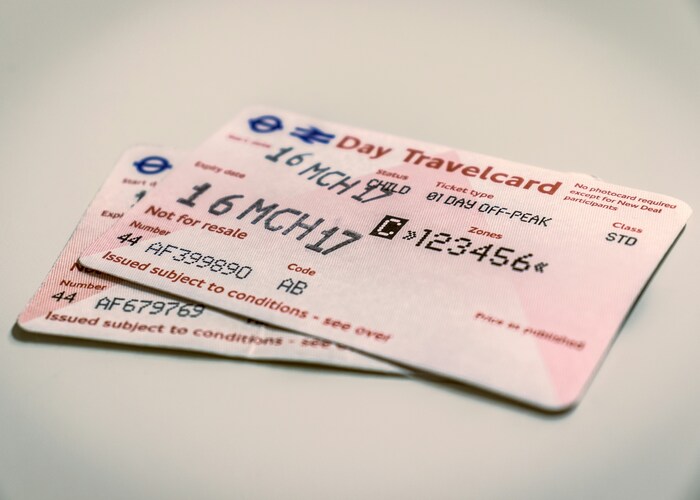Air travel is expensive, especially for long-haul flights. Travelers are constantly seeking ways to save money on tickets, and one strategy that has gained attention is hidden city ticketing. Hidden City Ticketing: Is It Safe and Legal?.
At first glance, it seems like a clever hack: pay less for a flight by booking a ticket that has your actual destination as a layover. But is it safe? Is it legal? And what should you know before considering this strategy?
This guide explores the concept of hidden city ticketing, the potential risks, legal considerations, and expert tips for travelers.
What Is Hidden City Ticketing?
Hidden city ticketing is a travel strategy where a passenger books a flight with a final destination beyond their intended stop, and then exits the airport at the layover city.
For example:
- Your intended destination is City B.
- A direct flight from your origin to City B is expensive.
- You find a cheaper flight from your origin to City C, with a layover in City B.
- You disembark at City B instead of continuing to City C.
Essentially, you are using the airline’s pricing system to your advantage, taking advantage of situations where longer routes with extra stops are cheaper than direct flights.
Why Do Prices Differ So Much?
Airlines use complex pricing algorithms influenced by:
- Demand and Supply: Popular routes have higher fares.
- Competition: Routes with fewer competing airlines often cost more.
- Hub Cities: Flights through major hubs may be cheaper due to airline agreements and high traffic.
- Round-Trip Pricing: Sometimes a ticket to a farther destination is cheaper than a closer one.
Hidden city ticketing exploits these pricing patterns to save money.
Is Hidden City Ticketing Legal?
Legality is a major concern for travelers. The answer depends on perspective:
- Civil Law: You are not breaking any national laws by leaving a flight early. There are no criminal penalties for using hidden city ticketing.
- Airline Contracts: Airlines prohibit this practice in their contract of carriage. Violating these terms can result in penalties like:
- Losing frequent flyer miles.
- Being charged for the full fare of the ticket.
- Temporary or permanent bans from the airline.
So, while it is not illegal in a criminal sense, it is a breach of airline policy, which can have consequences if discovered.
Safety Considerations
Hidden city ticketing is generally safe in terms of physical travel, but there are practical issues to consider:
1. Checked Baggage
- Hidden city ticketing works only with carry-on luggage. Checked bags are usually routed to the ticketed final destination.
- If you check baggage, it will continue to City C, making it impossible to retrieve at the layover.
2. Flight Changes
- Airlines often change flight schedules or cancel routes.
- If your layover is modified or your flight is rerouted, you may end up at the wrong destination.
3. Missing Subsequent Flights
- Airlines may cancel subsequent legs if you do not board the first leg of your return or connecting flight.
- It’s important to book hidden city tickets for one-way trips only.
4. Frequent Flyer Accounts
- Using hidden city ticketing can trigger airline monitoring systems.
- Frequent use can result in loss of points, account suspension, or blacklisting. Hidden City Ticketing: Is It Safe and Legal?.
Practical Tips for Travelers
If you still consider hidden city ticketing, here are some tips to minimize risks:
- Carry-On Only: Avoid checked luggage.
- Book One-Way: Avoid using return or multi-leg tickets.
- Avoid Loyalty Accounts: Consider booking without using your frequent flyer number.
- Flexible Travel Plans: Be prepared for flight changes or cancellations.
- Limited Use: Frequent hidden city use increases the chance of being penalized.
These tips can help travelers minimize potential complications, but they cannot eliminate all risks.
Ethical and Financial Considerations
- Ethical Debate: Some travelers argue that hidden city ticketing exploits pricing inefficiencies rather than breaking laws. Airlines, however, view it as circumventing their business model.
- Financial Benefits: In some cases, hidden city ticketing can save up to 50% on airfare. However, these savings should be weighed against potential account penalties or additional travel stress.
- Alternative Strategies: Using legitimate methods such as flexible date searches, fare alerts, and cashback apps can also save money without breaching airline policies.
When Hidden City Ticketing Is Not Recommended
While hidden city ticketing can save money, it’s not suitable for every traveler or trip:
- Trips with Checked Luggage: Cannot use hidden city if you have baggage to check.
- Connecting Flights Needed for Return: If your travel requires a round trip, hidden city may disrupt your itinerary.
- High-Risk Airlines: Airlines known for strict enforcement may flag accounts.
- International Travel with Visa Restrictions: Some countries may require boarding for the entire ticketed route, particularly for connecting international flights.
In these cases, traditional booking methods are safer and more reliable.
Legal Alternatives to Save on Flights
For travelers seeking savings without risks, consider these strategies:
- Flexible Date Search: Often moving your travel by a day or two can reduce costs significantly.
- Multi-Airline Booking: Using different airlines for each leg can be cheaper.
- Flight Comparison Tools: Apps and websites provide fare comparisons and price alerts.
- Cashback and Reward Programs: Booking apps or airline programs often offer cashback or points to reduce the effective cost.
- Off-Peak Travel: Flying during shoulder seasons or mid-week can yield lower fares.
These methods provide savings without breaching airline contracts.
Conclusion
Hidden city ticketing can be a tempting way to save money on flights, but it comes with significant risks and restrictions. While not illegal, it violates airline policies, and repeated use can result in penalties such as losing frequent flyer miles or account suspension.
For travelers considering this strategy:
- Use carry-on luggage only.
- Book one-way trips.
- Avoid using loyalty accounts.
- Consider the ethical and practical implications.
For most travelers, safer alternatives like flexible date booking, fare alerts, and cashback apps provide a more reliable and risk-free way to save money.
Understanding the pros, cons, and risks of hidden city ticketing helps travelers make informed decisions while keeping trips smooth and hassle-free. Hidden City Ticketing: Is It Safe and Legal?.
High-Search FAQs
1. What is hidden city ticketing in flights?
Hidden city ticketing is booking a flight where your actual destination is a layover, allowing you to pay less than a direct ticket.
2. Is hidden city ticketing legal?
It is not illegal, but it violates airline policies. Frequent use can lead to account penalties or bans.
3. Can I check luggage with hidden city tickets?
No. Checked luggage will be routed to the final ticketed destination, so only carry-on bags should be used.
4. Are there risks using hidden city ticketing?
Yes. Flight changes, cancellations, and frequent flyer account penalties are common risks.
5. Are there safer alternatives to save on flights?
Yes. Flexible date searches, cashback apps, flight comparison tools, and off-peak travel are safe ways to reduce costs.






Leave a Reply